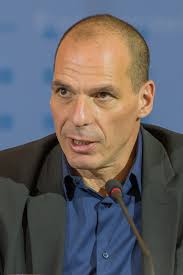The Political Journey of Yanis Varoufakis

Introduction
Yanis Varoufakis has emerged as a significant figure in global economics and politics, renowned for his tenure as Greece’s finance minister during its critical financial crisis. His unique perspective on economic reform and his outspoken nature have made him a prominent advocate for anti-austerity measures, capturing the attention of not only the European Union but also the global community. Understanding Varoufakis’s approach is crucial in navigating the contemporary economic landscape.
Early Life and Career
Born in 1961 in Athens, Varoufakis exhibited a keen intellect from an early age, eventually obtaining a degree in economics from the University of Athens. He later pursued advanced studies in mathematics and economics in the United States, which laid the groundwork for his unconventional thinking in economic policies. Before entering politics, Varoufakis was a successful academic and author, known for his critical analyses of capitalism and the global financial system.
Political Ascension
Varoufakis rose to international prominence in 2015 when he became Greece’s finance minister under Prime Minister Alexis Tsipras. During a tumultuous period marked by Greece’s debt crisis, Varoufakis advocated for reforms that would alleviate the burden of austerity measures imposed by the Troika: the European Commission, International Monetary Fund, and European Central Bank. His negotiation style, often likened to a game theorist’s strategic approach, exemplified a refreshing challenge to traditional economic practices.
Controversies and Criticism
Despite his fervent advocacy for economic reform, Varoufakis faced criticism from various political factions. Many traditional economists labelled his proposals impractical, while his combative negotiation style often alienated potential allies. The negotiation between Greece and its creditors proved particularly contentious, culminating in his resignation after a pivotal referendum in July 2015 where the Greek populace voted against further austerity. This event solidified his status as a polarising figure in European politics.
Continued Impact
Post-tenure, Varoufakis continues to be an influential voice on economic issues. He has written several books, including ‘Adults in the Room’, detailing his experiences during his time as finance minister. He also co-founded the DiEM25 movement, which aims to democratise the European Union and promote progressive policies across the continent. His ongoing commentary on economic affairs, combined with his social media presence, keeps him at the forefront of discussions regarding fiscal policy and social justice.
Conclusion
Understanding the impact of Yanis Varoufakis is vital for anyone interested in contemporary economic debates. His unyielding commitment to progressive reform continues to inspire discussions on economic sovereignty and social equity within the EU. As Europe faces new challenges, Varoufakis’s voice echoes in the push for a fairer financial system, making him a critical figure in both political and economic spheres.









